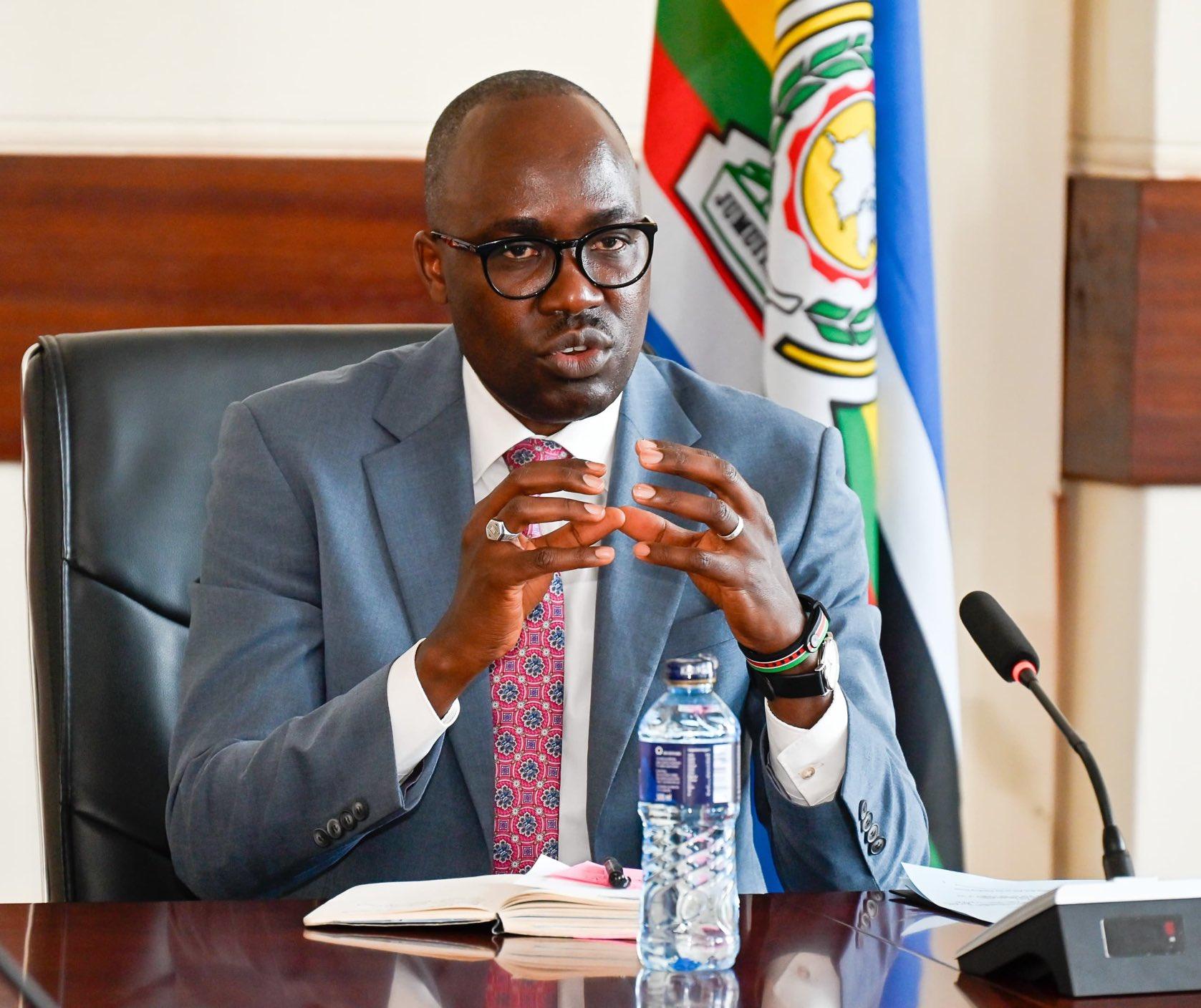
 Kenya's AUC chairman candidate, Raila Odinga/FILE
Kenya's AUC chairman candidate, Raila Odinga/FILEThe election for the next Chairperson of the African Union Commission (AUC) is scheduled for February 15-16, 2025, in Addis Ababa, Ethiopia. African Union (AU) Heads of State will choose one out of the three shortlisted candidates to replace Moussa Faki.
This position has been occupied by 6 people since the transition from OAU to AU as follows: Moussa Faki Mahamat (Chad) -2017–21, 2021–25; Nkosazana Dlamini Zuma (South Africa) – 2012–17; Jean Ping (Gabon) -2008–12; Alpha Oumar Konaré (Mali) -2003–08; and Amara Essy (Côte d’Ivoire-interim) -2002–03.
The AUC Chairperson is a key driver of Africa’s transformation by ensuring policies and strategies support four African priorities: African Agency (Africa's capacity to act independently and influence global events on its own terms), sustainable economic development, peace and security, and Africa’s integration.
The three candidates are Raila Amolo Odinga of Kenya, Mohamoud Ali Youssouf of Djibouti and Richard J. Randriamandrato of Madagascar. We now need to decide on, who is the most suitable candidate vis-à-vis the 4 priorities.
We will use a scale of 1 to 10, where 10 is the most suitable and 1 is the least suitable. We will attach a weight of 6 on vision, 3 on relevant experience, and one on educational background.
Raila’s vision starts with an assertation that “we must harness our vast human and natural resources, and combine the energy of our youth with the vision and wisdom of our leaders.”
On African Agency, he states that: “At this moment, at which our many opportunities risk being overshadowed by looming global challenges, we need an African Union Commission that can deliver on the priorities of the African peoples-both by catalyzing delivery on our continent and by commanding the global influence, it rightly warrants."
He takes a stand on Climate Action. His priority will be “to ensure that African people do not pay for a problem that they had no part in creating." Nonetheless, he commits to mobilise the necessary support for climate adaptations and mitigations, and promote climate-positive investments.
He adds that “I will raise Africa’s voice at international fora on climate change, climate action, and climate justice”. To address the exploitation of African countries by global financial institutions, he “will advocate for the reform of the global financial architecture to prioritize the needs of Africa to ensure equitable participation in global economic decisions”.
On sustainable economic development, Raila states that “I will champion initiatives to create an enabling environment for businesses to thrive, attract investments, and promote innovation and entrepreneurship”. He will drive policies that create jobs, reduce poverty, and improve lives.
He commits to “promoting industrialisation, supporting manufacturing, and enhancing innovation through investments”.
He will also embark on agricultural transformation and “ensure Africa’s food systems are independent and secure from predatory practices”. On Intra-African trade and African Continental Free Trade Area (AfCFTA), he will “advocate for open skies, visa policy harmonization and infrastructure development” Finally, he “will rally Member States and engage the private sector to finance AU priorities”.
In regard to peace and security, Raila “will prioritize conflict resolution and work with African leaders across the continent to address the root causes of instability”.
He also has a plan for Africa’s integration. He “will support Regional Economic Communities (RECs) and drive implementation of initiatives to enhance continental unity and prosperity”.
Mohamoud Ali Youssouf starts is vision statement by confirming that his “vision aims to make Africa an integrated, prosperous and peaceful continent guided by the values of diversity, gender equality, transparency and integrity. Inspired by Agenda 2063 and its second ten-year plan”
On African Agency, Mohamoud “pledge to defend Africa’s fair representation in international institutions and to strengthen its role in global forums”.
In regard to sustainable economic development, Mohamoud is “committed to strengthening the ties between the Commission and the Regional Economic Communities to promote economic and social development.”.
He will invest in various social projects and promote scientific research and innovation. He pledges to support African education, employment and entrepreneurship. He will also support investments in renewable energy, sustainable agriculture, in addition to protecting the environment and combating climate change.
He acknowledges that peace and security are essential for Africa’s sustainable development. He pledges to step up Africa’s action to “prevent conflict and promote stability”. He will also strengthen “mediation and arbitration mechanisms and address the root causes of conflict, such as poverty and inequality”.
On African integration, he is committed to pursuing strategic projects such as AfCFTA and infrastructure development such as the “integration railway and DINGA hydroelectric dam”.
He will collaborate with the private sector to raise required resources. Richard J. Randriamandrato’s vision statement is brief with scanty details. It highlights the problems facing Africa and what needs to be done, by others. He has no structured vision.
In regard to relevant experience, Raila has the most experience. He has been AU High Representative for Infrastructure Development in Africa, Prime Minister, Minister for Energy, Minister for Roads, Public Works and Housing, and a member of the National Assembly.
Mahmoud is the Minister of Foreign Affairs and International Cooperation as well as Government Spokesperson. He has been an Ambassador, Minister Delegate for International Cooperation and Member of the National Assembly.
Richard has been a Minister of Foreign Affairs, and also Minister of Economy and Finance. Using the earlier defined rating scale, Raila leads with a score of nine out of ten (9/10), followed by Mahmoud with a score of seven out of ten (7/10), and Richard trails with one out of ten (1/10).
Raila Amolo Odinga appears best suited to advance: African agency, sustainable economic development, peace and security, and Africa's integration.
The writer is the First Kenyan Ambassador to the Republic of Korea and Specialist in Korean Peninsula Studies.











